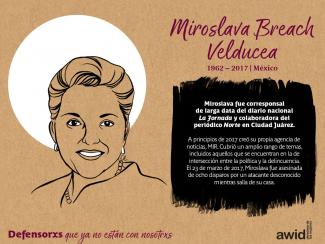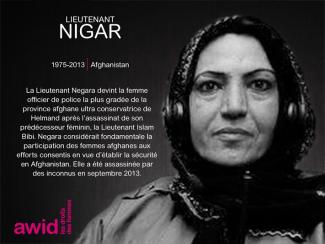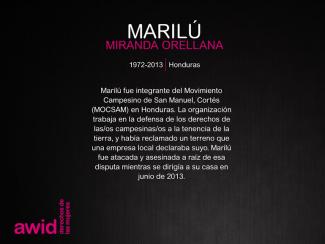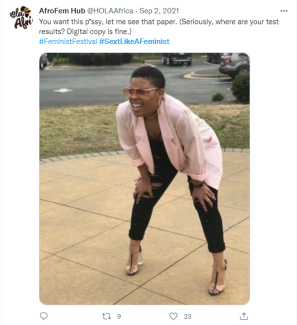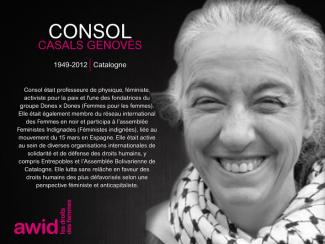Esta sección te guiará para garantizar que los resultados de la investigación sean representativos y confiables.
En esta sección:
Recoge la información
1. Antes de presentar la encuesta
- Primero decide cuál es la mejor manera de llegar a la población que quieres encuestar. Por ejemplo: si quieres centrarte en grupos que se organizan por los derechos de las mujeres indígenas, ¿conoces la principales redes que existen? ¿Tienes contactos en ellas? ¿Conoces personas que puedan presentarte a esas organizaciones o sabes cómo llegar a ellas?
- Determina si es posible llegar a la población principal con una encuesta en línea, si necesitas dar prioridad a la distribución de encuestas en papel y su recolección presencial, o si puedes combinar ambas metodologías. Esta decisión es muy importante para garantizar la accesibilidad y que la investigación sea incluyente.
- ¡Prepárate! Antes de comenzar a difundir la encuesta, genera una lista de espacios virtuales en los que podrás promoverla. Si la vas a distribuir en papel, genera una lista de eventos, espacios y métodos para distribuirla y recoger los resultados.
- Planea el cronograma por anticipado, para que no termines presentando la encuesta en un feriado importante o en medio de un período de vacaciones.
- Facilítale la difusión de la encuesta a tus consultorxs y a las organizaciones con las que trabajas, ofreciéndoles mensajes ya redactados que puedan copiar y pegar en Twitter, Facebook y correos electrónicos.
2. La presentación
- Envía el vínculo a la encuesta por correo electrónico utilizando las bases de datos de tu organización.
- Difúndela a través de las redes sociales de tu organización. Así como distribuyes periódicamente un boletín o publicación, también puedes difundir el hecho de que todavía es posible responder la encuesta.
- Si tu organización auspicia eventos en los que participa la población que quieres estudiar, allí tendrás una buena oportunidad de difundir la existencia de la encuesta y, si es necesario, distribuir versiones en papel.
- Invita a tus consultorxs a promover la encuesta a través de sus listas de correos electrónicos y pídeles que te copien en sus mensajes, para que sepas cómo la están difundiendo. Si se comprometen a colaborar contigo en esto, recuérdales que luego envíen recordatorios.
- Pídeles a financiadoras que compartan la encuesta con sus copartes. Como los resultados de la encuesta servirán para mejorar la labor de las financiadoras sobre el terreno, a ellas les interesará que sus copartes la respondan.
3. Mientras la encuesta esté abierta
- Permite que se responda la encuesta durante un mínimo de cuatro semanas, para garantizar que todxs tengan tiempo de responderla y que tú puedas difundirla lo más ampliamente posible.
- Utiliza tus bases de datos de correos electrónicos y las de las organizaciones con las que te asocies para enviar recordatorios invitando a responder la encuesta. Para no irritar con una lluvia de correos, te recomendamos que solo envíes dos recordatorios: uno en un momento intermedio mientras la encuesta todavía esté abierta y otro una semana antes de la fecha límite para responderla.
- Como parte de la labor de difusión, recuerda decir que solo recogerás una respuesta por organización. Esto hará que te resulte más fácil limpiar la información cuando debas prepararla para el análisis.
- ¡Guárdate una semana extra! Cuando llegues a la mitad del período durante el que es posible responder a la encuesta, revisa la información que ya has recogido. ¿Cómo te ha ido hasta ese momento? Cuenta cuántos grupos respondieron, de qué zonas geográficas, etc. Si descubres lagunas, contáctate con las poblaciones específicas que están ausentes. Considera la posibilidad de extender por una semana más la fecha límite para responder; si lo haces, incluye la información acerca de este nuevo plazo en uno de los recordatorios, informando que hay más tiempo para completar la encuesta. Muchos grupos responden la encuesta durante la última semana o recién cuando se les ofrece un plazo extra.
Si también piensas recoger información de las solicitudes que se envían a las financiadoras, este es un buen momento para ponerte en contacto con ellas.
Considera qué clase de solicitudes quieres analizar. El marco de investigación te ayudará a tomar esta decisión.
Tal vez no necesites ver todas las solicitudes enviadas a una financiadora en particular y te resulte más útil y eficiente consultar solo las que cumplen con los requisitos para ser financiadas (más allá de que finalmente las hayan apoyado o no).
También puedes pedirles a las financiadoras que compartan su información contigo.
Ver un modelo de carta para enviar a las financiadoras
Volver al comienzo
Prepara la información para ser analizada
Terminó el plazo para responder la encuesta y cuentas con mucha información. Lo que necesitas ahora es garantizar que sea lo más precisa posible.
Según el tamaño de la muestra y la cantidad de encuestas respondidas, este paso puede tomarte bastante tiempo. Para acelerar el proceso, lo mejor será contar con una buena cantidad de personas con capacidad de prestar atención a los detalles que se puedan encargar de esta tarea, garantizando así una mayor precisión en esta etapa.
Junto con las encuestas, probablemente también hayas recogido información de solicitudes enviadas a las financiadoras. Utiliza este mismo paso para organizar también esa información. No te desalientes si no puedes comparar estos dos conjuntos de datos entre sí. Las financiadoras recogen información que es diferente de la que tú habrás conseguido con las encuestas. En el informe y los productos finales sobre la investigación, podrás analizar y presentar por separado ambos conjuntos de información (la encuesta y la que te proporcionaron las financiadoras).
1. Limpia la información
- Resuelve las duplicaciones y elimínalas: si alguna organización completó más de una encuesta, contáctate con ella y juntas determinen cuál es la respuesta más precisa.
- Elimina las respuestas que no cumplen con tus criterios: revisa cada una de las encuestas completas y elimina las respuestas en las que no se haya respondido adecuadamente una pregunta. Reemplázalas por “nula”, para que queden fuera del análisis.
- Dale un formato sistemático a los datos numéricos: puedes, por ejemplo, eliminar las comas, los decimales y los signos de dólar de las respuestas numéricas. Tal vez tengas que convertir cifras escritas en diferentes monedas.
2. Codifica las respuestas abiertas
Existen dos clases de respuestas abiertas que requieren ser codificadas.
Preguntas con respuestas abiertas
Para estas preguntas, necesitarás codificar las respuestas para poder encontrar tendencias.
Algunos problemas que podrás enfrentar en este paso son los siguientes:
- La gente no usará exactamente las mismas palabras para dar respuestas similares.
- Las encuestas hechas en varios idiomas requieren que primero se traduzcan las respuestas para después codificarlas.
- La capacidad del personal para analizar y codificar las respuestas abiertas.
Si más de una persona analiza y codifica, tendrás que garantizar la consistencia de la codificación. Por eso recomendamos que incluyas solo una cantidad limitada de preguntas abiertas y que las estas pidan respuestas lo más concretas posibles.
Por ejemplo, si la pregunta abierta es «¿Qué desafíos específicos enfrentaste este año para movilizar recursos?» y algunas respuestas comunes son «falta de personal» o «la recesión económica», tendrás que codificar cada una de ellas para que puedas analizar cuántas veces fueron mencionadas.
Preguntas cerradas
Si ofreciste la posibilidad de agregar comentarios a las respuestas en preguntas cerradas, también necesitarás codificar esas respuestas.
Tal vez en varias preguntas de la encuesta hayas ofrecido la opción de «Otra», que muchas veces viene acompañada de un espacio en blanco para explicar la respuesta.
Tendrás que codificar esas respuestas y para esto dispones de dos opciones:
- Integrarlas a las opciones que ya habías propuesto. Por ejemplo, la encuesta pregunta «¿Cuál es tu color favorito?» y las opciones que propones son «azul», «verde» y «otro». Una persona responde «otro» y en la explicación escribe que «el color del cielo es mi color favorito». Esa respuesta la codificarás como «azul», integrándola a una de las categorías indicadas.
- Si encuentras varias respuestas que responden a una línea similar, puedes agruparlas en una nueva categoría. (Es un proceso similar al que utilizas para las preguntas abiertas). Retomemos el ejemplo de la pregunta acerca del color preferido. Supongamos que muchas personas eligen «otro» y luego explican que el color que prefieren es el «rojo». En este caso, puedes crear una nueva categoría que sea «rojo» y que te permita contar todas las veces que aparece esa respuesta.
- Eliminar las «otras» que no se ajustan a ninguna categoría indicada o nueva.
3. Elimina la información innecesaria
Analiza la frecuencia de los resultados
Para cada pregunta cuantitativa, puedes optar por eliminar el 5% o el 1% superior o inferior para impedir que los resultados se vean distorsionados por los valores atípicos*. También puedes controlar el efecto distorsionador de los valores atípicos* utilizando la mediana en lugar del promedio. Calcula la mediana ordenando las respuestas y luego eligiendo los valores que queden en el medio. Pero ten en cuenta que los valores atípicos tienen su utilidad. Pueden darte una idea del rango y la diversidad de participantes en la encuesta y tal vez te interese hacer estudios de caso en torno a algunos de esos valores atípicos.
* Los valores atípicos son puntos de referencia mucho mayores o mucho menores que la mayoría. Por ejemplo, imagina que vives en un barrio de clase media donde también vive una familia multimillonaria, y quieres averiguar cuál es el rango de ingresos para las familias de clase media en el barrio. Para eso, tendrás que eliminar el ingreso de la familia multimillonaria del conjunto de datos, porque se trata de un valor atípico. Si no lo haces, el promedio de ingresos de las familias de clase media que viven en el barrio aparecerá como mucho más elevado de lo que es en realidad.
Si encuentras respuestas de grupos que no corresponden a la población que quieres estudiar, elimina sus encuestas. En general puedes identificar a estos grupos por sus nombres o por sus respuestas a las preguntas cualitativas.
4. Protege la información
Para garantizar la confidencialidad de la información aportada por lxs participantes, en este paso puedes reemplazar los nombres de las organizaciones por un nuevo conjunto de números que identifiquen a cada organización y crear un archivo separado en el que figure la correspondencia entre cada código y la organización a la que identifica.
Junto con el equipo, decide cómo guardar y proteger el documento con los códigos y la información en general.
Una opción podría ser guardar toda la información en una computadora protegida por una clave o en un servidor al que solo pueda acceder el equipo de investigación.
Volver al comienzo
Genera el informe de resultados
En el informe con los principales resultados, detallarás los porcentajes de respuestas recibidas para cada pregunta de la encuesta. Esto te permite ver la suma total de respuestas.
Consejos:
- Es importante la consistencia: debes aplicar las mismas reglas a todos los valores atípicos para decidir si los dejas en el conjunto de datos o los eliminas.
- Asegúrate de que la codificación de las respuestas abiertas («Otra») sea consistente. Encárgale a una persona que revise códigos al azar para ver si la codificación fue consistente y confiable, y que vuelva a codificar la respuesta si fuera necesario.
- Si es posible, intenta que los equipos encargados de estas tareas sean de por lo menos dos personas para que siempre una pueda revisar lo que hace la otra.
Volver al comienzo
Analiza la información
Ahora que la información está limpia y ordenada, lo que sigue es entender su significado. Esta es la parte más entretenida, en la que comienzas a analizar tendencias.
¿Hay algún tipo de financiadora que se destaca (los gobiernos por encima de las empresas, por ejemplo)? ¿Hay regiones que están recibiendo más financiamiento? La información que recogiste te revelará algunos datos interesantes.
1. Programas estadísticos
-
Las muestras más pequeñas (menos de 150 respuestas) las puede analizar la propia organización utilizando una planilla de Excel.
-
Las muestras más grandes (más de 150 respuestas) las puede analizar la propia organización utilizando Excel si solo van a calcular el total de respuestas, los promedios o cualquier otro análisis simple.
-
Si piensas hacer análisis más avanzados, como los de variables múltiples, te recomendamos utilizar programas estadísticos como SPSS, Stata o R.
NOTA: SPSS y Stata son caros, pero R es gratis.
Estos tres tipos de programas exigen conocimientos por parte del personal y no es fácil aprender rápido cómo usarlos.
Intenta conseguir pasantes o personal temporario de universidades locales. Muchxs estudiantes deben aprender análisis estadístico como parte de su carrera y tal vez tengan acceso gratuito a programas como SPSS o Stata a través de su universidad. Tal vez también conozcan el R, que se puede descargar y utilizar gratis.
2. Puntos sugeridos para el análisis
- Análisis del tamaño total de los presupuestos;
- Análisis del tamaño de los presupuestos por región o tipo de organización;
- Financiadoras más comunes;
- Cantidad total de financiamiento informado;
- Porcentaje total que aporta cada tipo de financiamiento (corporaciones, gobierno, etc.);
- Temáticas/poblaciones más financiadas;
- Cambios a lo largo del tiempo en cualquiera de estos resultados.
Volver al comienzo
Paso previo
3. Diseña la encuesta
Paso siguiente
5. Realiza las entrevistas
